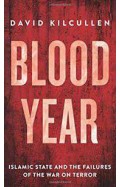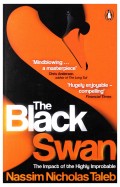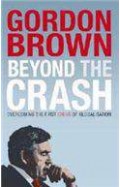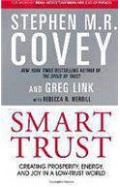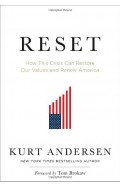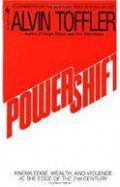- Home
- Categories
- Non Fiction
- Business & Management
- The Narrow Corridor: States, Societies, and the Fate of Liberty
The Narrow Corridor: States, Societies, and the Fate of Liberty
By: Daron Acemoglu
-
Rs 1,317.25
- Rs 2,395.00
- 45%
You save Rs 1,077.75.
Due to constant currency fluctuation, prices are subject to change with or without notice.
In this profoundly important follow up to their global bestseller, Acemoglu and Robinson provide a powerful new framework for looking at countries' development through the way that the state interacts with society.
This conceptualisation - in which any country can be located on a simple diagram and its future predicted - is new and based on decades of their research. The power distribution between state and society affects how peaceful societies are, what types of institutions develop, how much oppression and fear people suffer, how their economies are organized, and how rich they are.
Full of entertaining stories from the past (it starts with the wife of a Nigerian ruler fleeing Abuja with 38 suitcases of cash), Balance of Power sheds light on issues from the present and has practical political ideas for the future.
'An intellectually rich book that develops an important thesis with verve' Martin Wolf, Financial Times, on Why Nations Fail
In this profoundly important follow up to their global bestseller, Acemoglu and Robinson provide a powerful new framework for looking at countries' development through the way that the state interacts with society.
This conceptualisation - in which any country can be located on a simple diagram and its future predicted - is new and based on decades of their research. The power distribution between state and society affects how peaceful societies are, what types of institutions develop, how much oppression and fear people suffer, how their economies are organized, and how rich they are.
Full of entertaining stories from the past (it starts with the wife of a Nigerian ruler fleeing Abuja with 38 suitcases of cash), Balance of Power sheds light on issues from the present and has practical political ideas for the future.
'An intellectually rich book that develops an important thesis with verve' Martin Wolf, Financial Times, on Why Nations Fail
The Narrow Corridor: States, Societies, and the Fate of Liberty
By: Daron Acemoglu
Rs 1,317.25 Rs 2,395.00 Ex Tax :Rs 1,317.25
The Narrow Corridor : How Nations Struggle for Liberty
By: Daron Acemoglu
Rs 1,881.75 Rs 2,895.00 Ex Tax :Rs 1,881.75
The Narrow Corridor - States, Societies, and the Fate of Liberty
By: Daron Acemoglu
Rs 3,415.50 Rs 3,795.00 Ex Tax :Rs 3,415.50
The Narrow Corridor: States, Societies, and the Fate of Liberty
By: Daron Acemoglu
Rs 1,795.50 Rs 1,995.00 Ex Tax :Rs 1,795.50
Power and Progress: Our Thousand-Year Struggle Over Technology and Prosperity
By: Daron Acemoglu
Rs 4,045.50 Rs 4,495.00 Ex Tax :Rs 4,045.50
Zubin Mehta: A Musical Journey (An Authorized Biography)
By: VOID - Bakhtiar K. Dadabhoy
Rs 472.50 Rs 1,050.00 Ex Tax :Rs 472.50
Blood Year Islamic State and the Failures of the War on Terror -
By: David Kilcullen
Rs 1,395.00 Rs 1,550.00 Ex Tax :Rs 1,395.00
The Black Swan The Impact Of The Highly Improbable
By: Nassim Nicholas Taleb
Rs 2,965.50 Rs 3,295.00 Ex Tax :Rs 2,965.50
Beyond The Crash: Overcoming The First Crisis Of Globalisation
By: Gordon Brown
Rs 355.50 Rs 395.00 Ex Tax :Rs 355.50
Reset: How This Crisis Can Restore Our Values and Renew America
By: Kurt Andersen
Rs 450.00 Rs 500.00 Ex Tax :Rs 450.00
Powershift Knowledge Wealth And Violence at the Edge of the 21st Century
By: Alvin Toffler
Rs 1,271.25 Rs 1,695.00 Ex Tax :Rs 1,271.25
High Financier: The Lives And Time Of Siegmund Warburg
By: Niall Ferguson
Rs 1,787.50 Rs 2,750.00 Ex Tax :Rs 1,787.50
Why Smart People Make Big Money Mistakes and How to Correct Them
By: Gary Belsky
Rs 627.75 Rs 1,395.00 Ex Tax :Rs 627.75
Switch: How to change things when change is hard - (PB)
By: Dan Heath
Rs 767.25 Rs 1,395.00 Ex Tax :Rs 767.25
Blood Year Islamic State and the Failures of the War on Terror -
By: David Kilcullen
Rs 1,395.00 Rs 1,550.00 Ex Tax :Rs 1,395.00
No recently viewed books available at the moment.
Zubin Mehta: A Musical Journey (An Authorized Biography)
By: VOID - Bakhtiar K. Dadabhoy
Rs 472.50 Rs 1,050.00 Ex Tax :Rs 472.50
The Narrow Corridor: States, Societies, and the Fate of Liberty
By: Daron Acemoglu
Rs 1,317.25 Rs 2,395.00 Ex Tax :Rs 1,317.25
The Narrow Corridor : How Nations Struggle for Liberty
By: Daron Acemoglu
Rs 1,881.75 Rs 2,895.00 Ex Tax :Rs 1,881.75
The Narrow Corridor - States, Societies, and the Fate of Liberty
By: Daron Acemoglu
Rs 3,415.50 Rs 3,795.00 Ex Tax :Rs 3,415.50
The Narrow Corridor: States, Societies, and the Fate of Liberty
By: Daron Acemoglu
Rs 1,795.50 Rs 1,995.00 Ex Tax :Rs 1,795.50
Power and Progress: Our Thousand-Year Struggle Over Technology and Prosperity
By: Daron Acemoglu
Rs 4,045.50 Rs 4,495.00 Ex Tax :Rs 4,045.50
Blood Year Islamic State and the Failures of the War on Terror -
By: David Kilcullen
Rs 1,395.00 Rs 1,550.00 Ex Tax :Rs 1,395.00












-313x487.jpg?q6)
-120x187.jpg?q6)
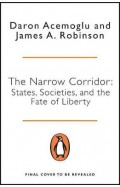
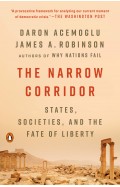
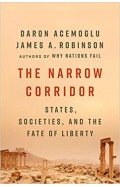
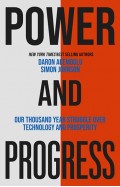
-120x187.jpg?q6)






